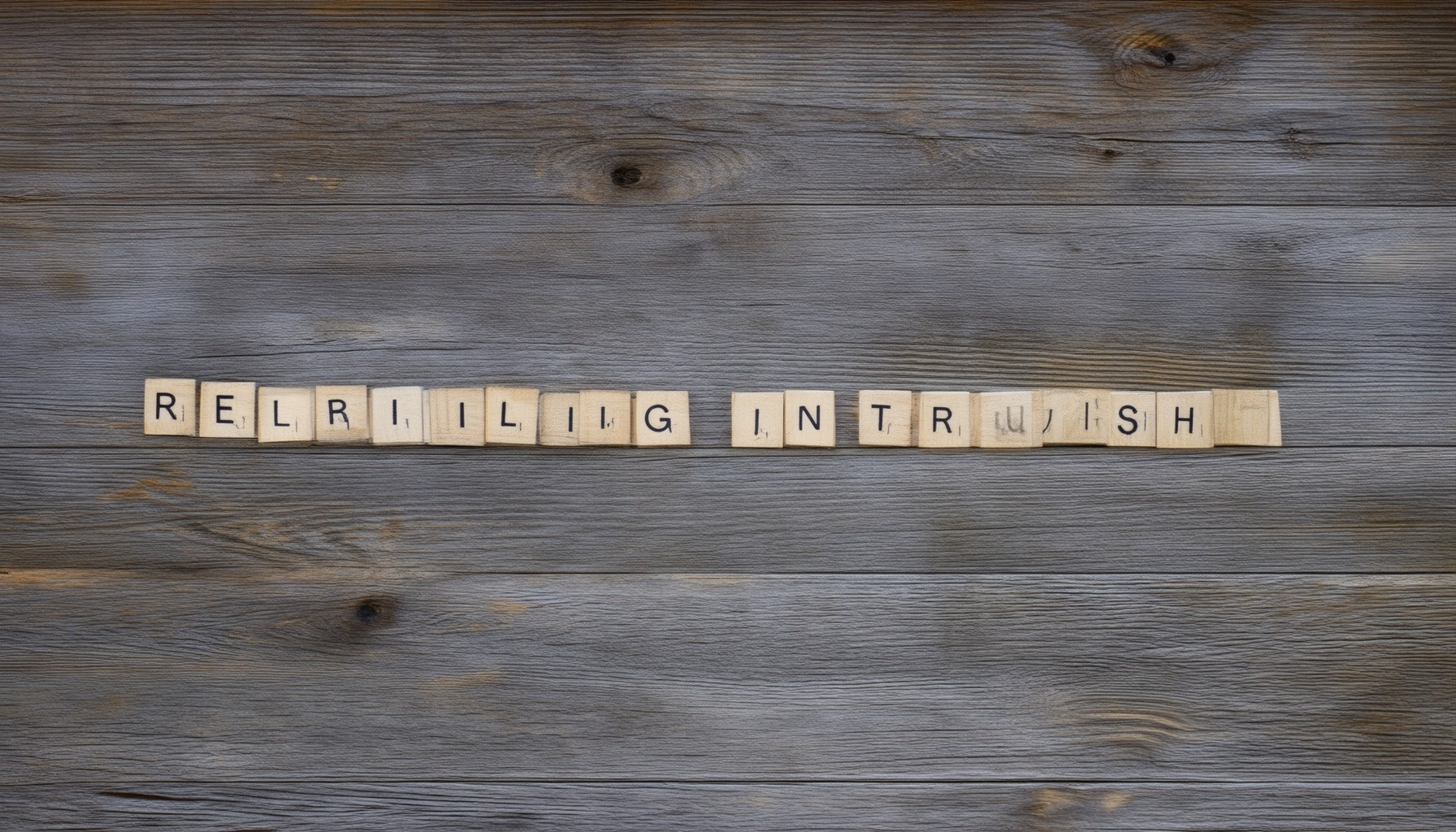Trust is the foundation of any strong relationship, but it can be easily broken, leaving individuals feeling lost and disconnected. Whether you’re working through trust issues in a marriage, trying to rebuild trust after infidelity, or simply wanting to strengthen your bond, understanding the importance of trust in relationships is crucial. This guide offers expert advice on how to rebuild trust, explore the causes of trust issues, and discover effective strategies to foster stronger connections. From communication techniques to therapy options, we’ll cover everything you need to know to repair and maintain trust in your relationships. By addressing the root causes and implementing practical steps, you can work towards creating a partnership built on honesty, reliability, and mutual respect. Let’s delve into the psychology of trust, the signs of a lack of trust, and the best approaches to healing a relationship when trust is broken.
What Are the 3 C’s of Trust in a Relationship?
In any relationship, establishing trust is crucial for its longevity and strength. The foundation of trust is built upon three key components:
- Communication : Open and honest dialogue fosters understanding and strengthens connections. Effective communication ensures that both parties feel heard and valued.
- Compromise : Healthy relationships require mutual flexibility. Compromise involves finding common ground and being willing to adjust for the sake of the relationship.
- Commitment : This is the dedication to working through challenges and staying invested in the relationship despite difficulties.
These elements work synergistically to create a solid framework for trust, allowing relationships to thrive. By prioritizing these Cs, individuals can cultivate deeper, more meaningful connections.
For more insights into building and maintaining trust, explore our Chris and One resources and guides on relationship growth. Discover practical tips and expert advice to enhance your emotional bonds today!
How to Stop Trust Issues in a Relationship
Building and maintaining trust in a relationship requires consistent effort, open communication, and self-awareness. Here’s a step-by-step guide to overcoming trust issues:
1. Acknowledge Your Feelings
Start by understanding why trust issues have arisen. Are they due to past experiences, miscommunications, or unmet expectations? Reflect on your emotions and recognize that addressing these feelings is the first step toward healing.
2. Communicate Openly
Trust issues often stem from lack of communication. Schedule regular conversations with your partner to discuss your concerns, fears, and hopes. Approach these discussions with empathy and without blame to foster a safe space for dialogue.
3. Set Boundaries
Clear boundaries are essential for building trust. Discuss what each of you expects from the relationship and agree on shared goals. This mutual understanding helps prevent misunderstandings and reinforces your commitment to each other.
Examples of Boundary Setting:
- Agree on shared responsibilities for household tasks.
- Discuss financial commitments and decision-making processes.
- Establish rules for social media usage and privacy.
4. Rebuild Trust Gradually
Trust doesn’t repair overnight. Start small by showing consistency in your actions. Keep promises, be reliable, and demonstrate your commitment to the relationship through your behavior.
5. Seek Professional Help if Needed
If trust issues persist, consider working with a relationship counselor or therapist. They can provide tailored strategies and mediate difficult conversations to help you both move forward.
6. Practice Self-Awareness
Understand your own triggers and learn to manage them. Journaling or therapy can help you gain insight into your emotional responses and develop healthier coping mechanisms.
7. Focus on the Future
Instead of dwelling on past betrayals, focus on building a future together. Set new standards for trust and work collaboratively to ensure these standards are met moving forward.
8. Use Resources to Enhance Communication
Leverage tools and resources designed to improve relationships. Websites like Chris and One offer valuable insights and exercises to strengthen trust and communication in partnerships.
9. Consider Individual Growth
Personal development can play a crucial role in relationship health. Work on improving yourself through self-help programs, courses, or workshops to become the best version of yourself for your partner.
10. Be Patient and Persistent
Healing trust issues takes time. Be patient with yourself and your partner, and celebrate progress, no matter how small. Consistency and effort are key to rebuilding and maintaining trust.
By addressing these steps thoughtfully and consistently, you can work towards overcoming trust issues and fostering a stronger, more resilient relationship.
Understanding the Root Causes of Trust Issues
Trust issues can arise from various psychological, emotional, and situational factors. Understanding these underlying causes is crucial for addressing and overcoming them effectively. Let’s explore the primary reasons behind trust challenges:
Situational Factors
Situational trust issues often stem from specific events or experiences that shake confidence in others. For instance:-
Experiencing betrayal or dishonesty in past relationships can leave lasting scars, making it difficult to trust again.
–
Traumatic events or childhood trauma may impact trust development, leaving individuals cautious in forming connections.
–
Unresolved conflicts or misunderstandings in current relationships can erode trust over time.
Psychological Factors
Our psychological makeup plays a significant role in how we perceive trust:-
Childhood experiences heavily influence trustworthiness beliefs. A supportive upbringing fosters trust, while neglect or abuse can create skepticism.
–
Personality traits such as introversion or anxiety may amplify fears of rejection or exploitation, contributing to trust issues.
–
Attachment styles from early relationships shape our expectations of others, affecting how we perceive trustworthiness.
Societal Influences
The world around us also impacts our trust levels:-
Cultural background can dictate social norms around trust, influencing how we approach relationships.
–
Media portrayal of dishonesty may skew perceptions, making trust feel less natural.
–
Modern connectivity through digital platforms complicates trust, as online interactions often lack face-to-face authenticity.
The Impact of Past Betrayals
Past betrayals are particularly damaging to trust:-
Infidelity or financial misconduct leaves deep emotional wounds, making it hard to rebuild trust.
–
Repeated trustworthy behavior from a partner can gradually restore confidence over time.
–
Forgiveness requires acknowledging the harm caused and showing consistent trustworthy actions over time.
Overcoming Trust Issues
Addressing trust issues requires intentional effort and reflection:-
Self-awareness is key. Reflect on past experiences to identify patterns and understand your triggers.
–
Open communication with your partner helps clarify intentions and reduce misunderstandings.
–
Prioritize building trust incrementally. Small, consistent actions demonstrate reliability and foster growth.
–
Seeking professional guidance from counselors or coaches can provide tailored strategies for rebuilding trust.
Building Stronger Relationships
To cultivate lasting trust:-
Be honest and transparent about your intentions and actions.
–
Follow through on promises to establish credibility.
–
Listen actively and validate your partner’s feelings to build emotional connection.
–
Accept imperfections and work through conflicts constructively.
By understanding the root causes of trust issues and applying these strategies, we can navigate challenges and build more meaningful connections. Remember, trust is a cornerstone of healthy relationships, and nurturing it requires patience, empathy, and consistent effort.
Best Therapy for Trust Issues
Addressing trust issues often requires a combination of therapeutic approaches tailored to the individual’s unique challenges. Here are some effective therapies and strategies:
- Schema Therapy : Ideal for individuals with long-standing trust issues rooted in early relational experiences. This therapy targets deep-seated emotional patterns and beliefs, helping clients develop healthier attachment styles.
- Cognitive Behavioral Therapy (CBT) : Effective for trust issues stemming from distorted thought patterns. CBT helps identify and challenge negative thoughts, fostering more balanced perspectives on relationships and trust.
- Emotion-Focused Therapy (EFT) : Focuses on emotional connection and repair. EFT helps individuals explore and process emotions related to trust, promoting greater intimacy and security in relationships.
- Attachment-Based Therapy : Addresses trust issues by exploring attachment histories and developing secure attachment patterns. This therapy is particularly useful for those with attachment wounds.
- Gestalt Therapy : Encourages exploration of the present moment to understand how past experiences influence current behaviors. This can be helpful for building trust in the here-and-now.
Additionally, Chris and One offers valuable resources on understanding and overcoming trust issues through their comprehensive guides and workshops. Their expertise in relationship dynamics makes them a trusted source for anyone looking to heal and grow in their connections.
Remember, therapy success often depends on the client’s commitment and the therapist’s ability to create a safe, non-judgmental space. Consider exploring these therapies with a qualified mental health professional who specializes in trust issues to tailor a treatment plan that fits your needs.
How to Heal a Relationship When Trust is Broken
Rebuilding trust in a relationship requires patience, understanding, and consistent effort. Here’s a step-by-step guide to help you navigate the process:
- Understand the Break
- Reflect on what went wrong and identify the root cause of the trust breach.
- Recognize that both parties may have contributed to the breakdown, regardless of fault.
- Be honest with yourself about your role in the situation without being defensive.
- Schedule a calm and focused conversation to discuss the issues without blame.
- Use “I” statements to express your feelings rather than accusing or blaming the other person.
- Listen actively to understand their perspective without interrupting or becoming defensive.
- Set boundaries for future interactions to prevent recurring issues.
- Admit to any mistakes or missteps that led to the trust being broken.
- Be truthful about your intentions and actions moving forward.
- Share your fears and concerns honestly to rebuild credibility.
- Practice empathy by putting yourself in the other person’s shoes.
- Be patient and understanding, allowing time for both of you to heal emotionally.
- Engage in self-care to manage stress and negative emotions effectively.
- Consistently demonstrate reliability through your actions and words.
- Keep promises and follow through on commitments to build trust gradually.
- Be available for open dialogue whenever trust feels fragile.
- Celebrate small victories to reinforce positive changes in behavior.
- Focus on building stronger emotional connections through shared experiences.
- Prioritize quality time together to strengthen your bond.
- Stay committed to working through challenges together.
- Seek professional support if needed, such as couples therapy, to facilitate healing.
Remember, trust reconstruction is a gradual process that requires consistent effort and mutual commitment. By addressing the root causes and nurturing your relationship thoughtfully, you can work towards healing and rebuilding trust effectively.
Can Couples Therapy Help with Trust Issues?
Couples therapy can indeed play a pivotal role in addressing trust issues within a relationship. By providing a safe and structured environment, it allows both partners to explore the root causes of their distrust, fostering open communication and understanding.
- Improved Communication: Couples therapy encourages honest dialogue, helping both individuals express their feelings and concerns. This transparency can significantly mend trust by clarifying misunderstandings and miscommunications.
- Emotional Safety: A therapist can help create a non-judgmental space, enabling both partners to share vulnerabilities without fear of criticism. This emotional openness can rebuild trust over time.
- Rebuilding Trust Step-by-Step: Through guided exercises and discussions, couples can identify and address behaviors that eroded trust. This process often involves setting clear expectations and learning to navigate conflicts constructively.
- Setting Boundaries and Forgiveness: Therapy can help couples establish healthy boundaries and work toward forgiveness. Understanding each other’s needs and limitations is a cornerstone of trust restoration.
Ultimately, couples therapy equips partners with the tools needed to address trust issues head-on, fostering stronger, more resilient relationships over time.









0 Comments